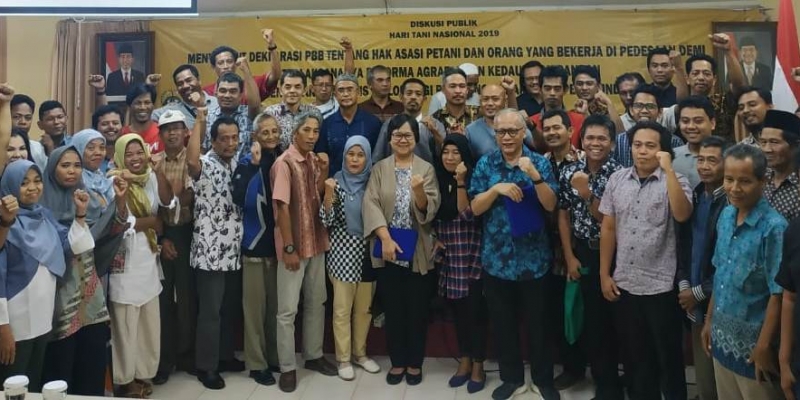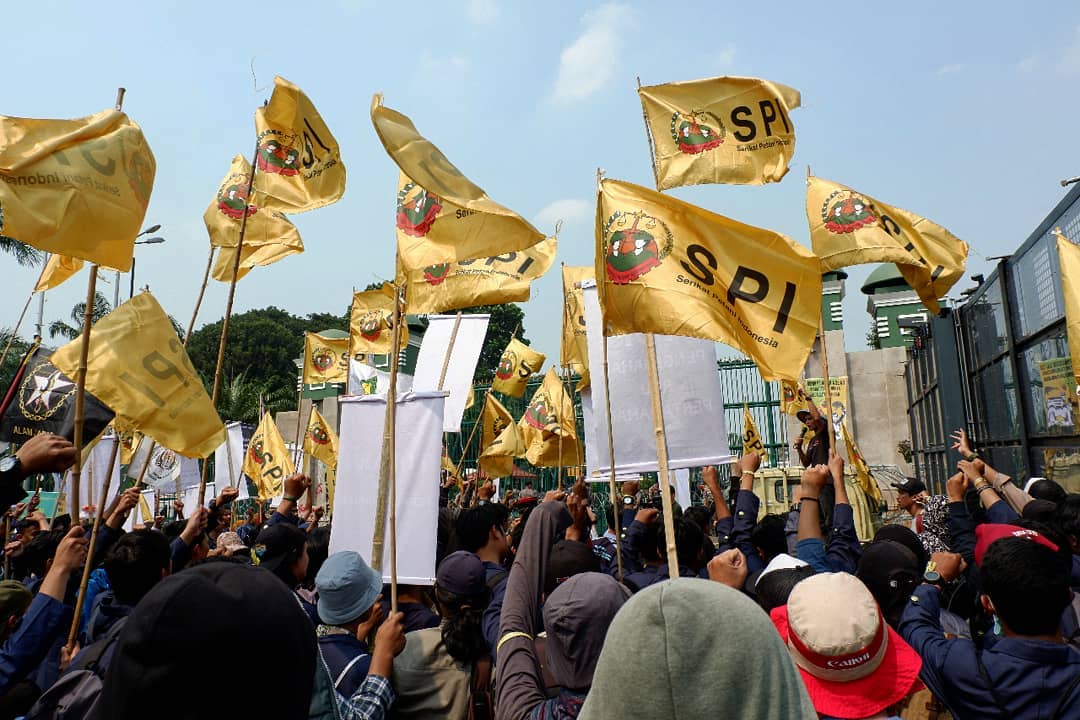On 24th September, 1960, in a historic move, the Indonesian government enacted an Agrarian Law known as UUPA 1960, thereby replacing the old and unfair land legislation which had once been put in place by the Dutch colonial rulers .
Ever since, UUPA 1960 has formed the basis for land laws in the country and also for regulating agrarian resources in Indonesia . This progressive piece of legislation was aimed at overhauling Indonesia’s agrarian structure, which was inherently unequal at the time of it’s independence. This law emphasises that agrarian resources should be managed and utilised for the prosperity of peasants and thereby the nation.
Over the last six decades, peasants in Indonesia have come to mark 24th of September every year as the National Peasants’ Day. As always, this year too, Serikat Petani Indonesia (SPI), which is among the most prominent peasant unions in the country, held a public event and several other actions to commemorate the day and also to raise awareness among its cadres on agrarian issues in the country.

Speaking at the public event, Henry Saragih, who is the Chairperson of SPI commended the Jokowi administration for initiating agrarian reforms, bringing in resolution mechanisms to address agrarian conflicts and for introducing programs for food sovereignty.
However, he also insisted the government should step up its efforts multifold to bring in visible changes and also noted with utmost concern that many draft legisltations that are currently being discussed in the parliament, as Jokowi’s current administration approaches the end ot its tenure, are infact contradictory to the steps taken thus far towards a comprehensive agrarian reform.
There are five proposed amendments that have direct bearing on the lives of peasants and rural communities; The proposed changes to the law on Land, on Sustainable Agriculture Cultivation System, on Cooperatives and on Animal, Fish and Plant Quarantine and on Water Resources will have serious implications for peasants, fishers and indigenous families. The amendments to Plant Quarantine law and those proposed on Sustainable Agriculture Cultivation has already been passed by the Parliament, while the others are still being discussed.
At the event members of Serikat Petani Indonesia demanded that besides harmonising these draft laws with the relevant provisions under UUPA 1960, , the Indonesia Government must also refer to the United Nations Declaration on the Rights of Peasants and Other People Working in Rural Areas (UNDROP).
As UNDROP contains regulation of protection and empowerment on rights of peasants and other people working in rural areas, parliament must put UNDROP as reference for formulating regulations from national level to village level, the union said.
At the public meeting, peasants also analysed the impact of various global trade agreements that Indonesia had signed onto over the years. These agreements, the peasants said, marginalizes the economic life of rural communities and compromised on Indonesia’s food sovereignty.
Citing one striking example from recent times wherein Indonesia has received a lawsuit from Brazil at the WTO (World Trade Organisation) challenging the country’s import policies on poultry, the peasant union has warned that any negative outcome from this lawsuit will have serious implications for livelihoods of thousands of Indonesian families, who are small scale food producers.
At the event, Reacting to the massive forest fires which blazed on the islands of Sumatra and Borneo in mid-September, the peasant union urged the government to transform Indonesia’s agricultural model into agroecological agriculture, an agricultural model that does not damage nature, and prioritises the fulfilment of national food needs, for food sovereignty.
“Abandoning farming methods that destroy nature are only oriented to meet the interests of international markets, which are currently on the brink of crisis, ” Henry said during the event.
SPI encourages its members to plant crops that are not dependent on the vagaries of global markets or that which are easily exposed to fires. It encourages its members to engage in agroecological agriculture that is environmentally friendly to realise national food sovereignty.

